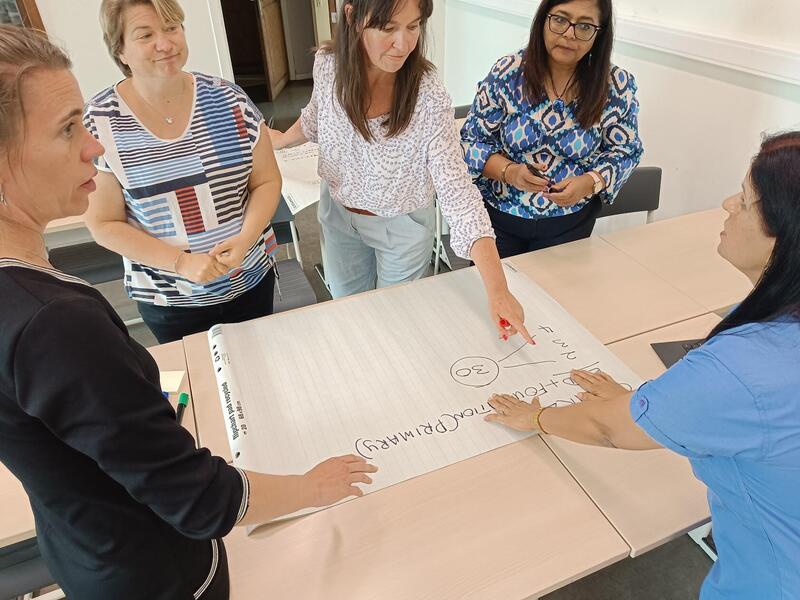eNSPIRED contributes to the internationalisation of education in Flanders in various ways. One such way is through tailored project guidance. For example, we support the teacher training programme at Howest University of Applied Sciences in launching a COIL (Collaborative Online International Learning) project. This online exchange project connects their students with students from two South African universities: the University of Kwazulu-Natal and the University of Zululand.
During this enlightening week, brainstorming sessions took place, ideas were exchanged, and plans were made. The various teacher trainers got to know each other, each other's contexts, school systems, and students better. The ideal foundation for a sustainable collaboration.
These are the specific objectives for the student teachers who will participate:
This COIL project promises to be an enriching experience for all involved and contributes to the further internationalisation and quality improvement of education in Flanders and South Africa.
An inspiring meeting in Bruges
At the beginning of July 2024, the Howest campus in Bruges set the stage for an inspiring meeting. Three teacher trainers, namely Leen Van der Stock from Howest, Angela James from the University of Kwazulu-Natal, and Samantha Govender from the University of Zululand, came together to shape the COIL project. Sabine Anné from Djapo joined as an expert partner in education for sustainable development.During this enlightening week, brainstorming sessions took place, ideas were exchanged, and plans were made. The various teacher trainers got to know each other, each other's contexts, school systems, and students better. The ideal foundation for a sustainable collaboration.
Focus on the Sustainable Development Goals
The central theme of the COIL project is the United Nations' Sustainable Development Goals (SDGs) and their integration into primary education.These are the specific objectives for the student teachers who will participate:
-
Better understanding of sustainable education:
Students develop insight into how they can integrate education for sustainable development into the curriculum.
-
Learning from each other's context:
Students make a comparative analysis of the organisation of primary education in Flanders and South Africa, identifying similarities and differences.
-
Effective use of digital tools:
Students learn to use digital tools effectively for communication, collaboration, and project management in an international context.
-
Improvement of communication skills:
By working in an international team, students improve their communication skills and learn to work effectively across cultural boundaries.
Online collaboration in October
In October, the Flemish and South African students will come together online at various times to achieve these objectives. This international dialogue offers a unique opportunity for students to enhance their international and intercultural competencies and to gain valuable experiences.This COIL project promises to be an enriching experience for all involved and contributes to the further internationalisation and quality improvement of education in Flanders and South Africa.




